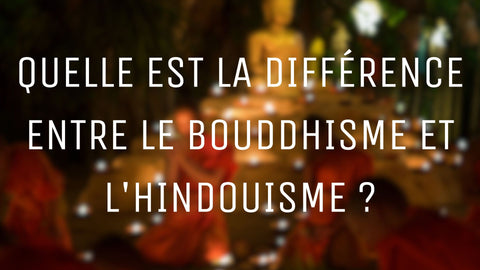
What are the beliefs of Buddhism
of reading
the Buddhism is a religion based on the teachings of Siddhartha Gautama, who was born in Nepal and Northern India in the fifth century BC. He became known as "Buddha", which means "awake", after having had a deep sense of the nature of the life that led him to enlightenment.
During the rest of his life, the Buddha traveled and taught. He did not teach individuals what he had discovered after reaching illumination. He rather explained to them how to reach the illumination for themselves. What are the fundamental principles of Buddhism?
Read also: How to practice Buddhism

A religion in its own right
Because it is so distinct from other religions, some people wonder if it is a religion. Many religions, for example, focus on one or more religious traditions. However, Buddhism is not theist. The Buddha stated that faith in gods was detrimental to a person's spiritual growth.
Buddhists define their religion through its principles. However, in Buddhism, subscribe to lessons does not matter. The Buddha should not accept beliefs because they are set out in the texts or transmitted by priests.
The Buddha encouraged people to discover the truth by themselves rather than teaching them a truth learned by heart. Rather than teaching dogmas to memorize and accept, the Buddha taught his disciples how to realize the reality by themselves. Buddhism favors practice to religion. The octuple path is the basic structure of Buddhist training.
Read also: the place of worship of Buddhism

Fundamental beliefs in Buddhism
You will find in the Buddhisms some fundamental precepts such as: the four noble truths, the noble path octuple then the five precepts
The four noble truths
Discomfort and suffering are part of life.
The causes of dissatisfaction and suffering are desire and attachment.
There is a goal to your dissatisfaction and suffering.
The noble path Octle can lead you to the end.
The noble path octuple
Recognize the four noble truths: everything changes, and understand it leads to enlightenment. Learn how things work by learning about yourself and others.
Decide to live your life on the right track. To end the upheaval of selfishness, develop goodness, empathy and compassion.
Lies and deception, the medition, the idle words and the abusive words are to be avoided. Cultivate honesty and sincerity; Use an amiable and courteous language. Make sure your words reflect your willingness to help others rather than harm them.
To read also: Buddhism, monotheistic religion or polytheistic?
Follow the five Buddhist wishes: Live a life that expresses your highest aspirations. Exhibit compassion for all creatures by adopting peaceful, honest and pure behavior.
Make a living without harming others. Avoid work that causes suffering to others or makes it impossible for a decent and honorable life. Do not continue a vocation that goes against the path or divert it from the right track. By your work, like and take care of our planet.
Balance the effort of the practice of spirituality with a reasonable existence that is not too zealous. Work to create better mental states while slowly pushing you to go further and live more fully.
Take aware of the many states, emotions and thoughts of your body. We are trying to release the spirit of egocentric ideas that separate and replace them with ideas that connect all people. Be aware of your feelings, your moods, your body and your environment as they are. Your thoughts define your reality.
The purpose of meditation is to elevate the user's level of consciousness (illumination). Look to turn off the last flame of consciousness and cultivating a vacuum that allows you to embrace and love all things through meditation and mental discipline.

The five precepts
The five rules are fundamental ethical principles for Buddhists.
It is not a question of commandments of a God, but rather private acts of devotion.
In other words, these principles promote peace and minimize suffering between us.
Compassion (Karuna) and benevolent love (Metta) are the two qualities of the underlying moral code, which are used as principles in life.
The five precepts summarize the basic principles of Buddhism. They are:
- You should not kill or solicit to be killed
- You do not have to fly, nor offer anything in exchange for money to someone who has already stolen her
- You do not have to lie about your master, and you can only talk about him than reverence
To read too: Do the Buddhists believe in God?
Misunderstanding on Buddhism
The majority of people believe that Buddhism is a religion based on reincarnation and all Buddhists are vegan. These two beliefs are incorrect.
The Buddhist vision of the Renaissance is significantly different from the notion of reincarnation that most people know.
Vegetarianism is praised in Buddhism and in several branches, which is not incorrect. However, it is not mandatory. It is also a personal choice. In addition, it presents several health benefits that even non-religious people find convincing.



















